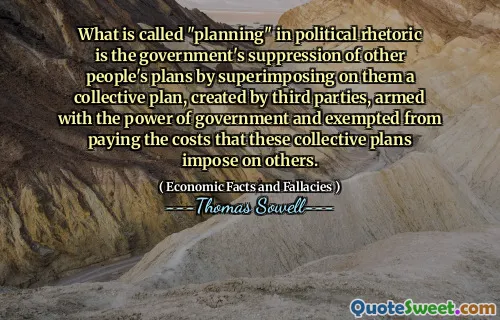"Economic Facts and Fallacies" by Thomas Sowell delves into common misconceptions in economics, highlighting how these fallacies can mislead public understanding and policy. Sowell examines various topics such as income disparities, education, and housing, aiming to clarify misconceptions that arise from oversimplified views. He argues that many economic problems are rooted not in complex systems but in fundamental misunderstandings of how markets and economic forces operate.
The author uses real-world examples to illustrate his points, pointing out how widely accepted beliefs may not stand up to scrutiny. For instance, he challenges the notion that income inequality is primarily a result of unfair systemic factors, arguing that differences often arise from individual choices and opportunities. This approach helps readers reassess common beliefs and understand the role of personal responsibility and market dynamics.
Sowell emphasizes the importance of grounding economic discussions in facts rather than emotions or political agendas. By effectively debunking myths and clarifying economic principles, he encourages readers to think critically about economic issues. "Economic Facts and Fallacies" serves as a compelling guide for anyone interested in understanding the complexities of economics through a more informed lens.
More »
Today Birthdays
1729 -
Edmund Burke
1949 -
Haruki Murakami
1954 -
Howard Stern
1876 -
Jack London
1993 -
Zayn Malik
1951 -
Kirstie Alley
1863 -
Swami Vivekananda
1923 -
Alice Miller
1987 -
Naya Rivera
1825 -
Brooke Foss Westcott
1944 -
Joe Frazier
1951 -
Rush Limbaugh
1964 -
Jeff Bezos
1978 -
Jeremy Camp
1628 -
Charles Perrault
1856 -
John Singer Sargent
1970 -
Kaja Foglio
1953 -
Rick Santelli
1986 -
Gemma Arterton
1968 -
Raf Simons
1958 -
Christiane Amanpour
1966 -
Olivier Martinez
1996 -
Ella Henderson
1917 -
Maharishi Mahesh Yogi
1949 -
Ottmar Hitzfeld
1928 -
Ruth Brown
1968 -
Heather Mills
1946 -
George Duke
1968 -
Rachael Harris
1923 -
Ira Hayes
